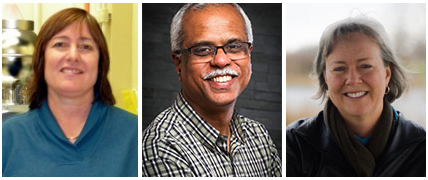Remembering William “Bill” Reeburgh (1940-2021)
December 15, 2021
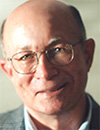
Professor William S. Reeburgh, known to friends and colleagues as Bill, died in July. He was a Geochemistry Fellow and active supporter of the Geochemical Society for many years. He and his wife, Carelyn, established the Endowed Biogeochemistry Lecture in 2016 and it is now an important part of the annual Goldschmidt Conference.
Born in 1940 in Port Arthur, Texas, Bill received his B.S. in chemistry from the University of Oklahoma and a Ph.D. in oceanography from Johns Hopkins University. He was professor and chair of Marine Science at the University of Alaska, Fairbanks for many years. In 1993, he moved to the University of California, Irvine as a founding professor of the university's Department of Earth System Science.
According to a press release from UCI:
"Bill Reeburgh's research contributed enormously to our understanding of the global methane cycle, and it was once said that he was to methane what Dave Keeling was to CO2. He recognized that methane entering the atmosphere and oceans represents the small imbalance between very large methane production and oxidation sinks resulting from microbial activity in sediments and soils. He demonstrated an important new sink mechanism for methane in oxygen-free environments, but had to convince skeptical microbiologists, as no microbe had then been discovered with this metabolism. To do this, Bill used what he called "the 3R's" – documenting routes, reactions and rates by combining tools ranging from sediment reaction-diffusion modeling, isotope labeling and stable isotope distributions to build an incontrovertible case. Many of the measurements came from favorite field sites in Skan Bay, Alaska and the Black Sea."
His important contributions to the fields of biogeochemistry and global elemental cycling were recognized by the GS and EAG in 2018 when Bill was named a Geochemistry Fellow. He was also a fellow of the American Geophysical Union, the American Academy of Microbiology and the American Association for the Advancement of Science.
Bill and Carelyn were married for 54 years and raised three children together. On retiring from UCI, Bill moved to Vancouver, Washington where he enjoyed woodworking, spending time with his six grandchildren, and serving on various scientific advisory committees, including the GS Strategic Planning Committee.
Bill will be missed by his many friends and colleagues in the Geochemical Society. But his and Carelyn's generosity will be felt long into the future as the Endowed Biogeochemistry Lecture continues to recognize innovative science in this field.
The Geochemical Society has planted a tree in memory of Bill Reeburgh. You can also plant a tree in his name.
Source:
Remembering Professor William "Bill" S. Reeburgh - UCI Physical Sciences Communications
Remembering Frederick A. Frey (1938-2021)
October 11, 2021
Fred Frey passed away on September 13, 2021 at 83 years of age. For over 50 years, Fred worked to build our understanding of the chemical composition of the Earth’s upper mantle and the generation of magma through mantle partial melting. He sought to understand the processes that lead to the diverse trace element and isotopic compositions of mantle rocks and mantle-derived magmas. Fred’s research was unique in that it encompassed two approaches to this understanding: direct study of mantle xenoliths and tectonically emplaced mantle rocks and the complementary study of magmas generated in different tectonic settings - at mid ocean ridges, oceanic islands, and subduction zones.
Recognizing a Broader Spectrum of Achievement
July 29, 2021
Excellence in geochemistry can be defined in many ways. Of course, this includes publication of novel discoveries, but it also includes teaching, capacity building, influencing policy making, science communication, and much more. Recognizing this, the Geochemical Society has broadened the definition of excellence we use in many of our award criteria.
The GS is also committed to increasing diversity in geochemistry and among its formally recognized inspirational and prominent figures. We seek to promote and encourage diversity and inclusion while furthering equity, a true sense of belonging, and success for all people. In particular, the society is keen to encourage talented researchers from underrepresented groups to serve as nominators and to be nominated for society awards.
Everyone in the geochemistry community is invited to participate in this process. Check out this list of frequently asked questions, which helps to demystify the process.
To submit a nomination, get started by reviewing the list of awards and their criteria. Nominations for our awards and special lectures are due by October 31.
GS to Add Early Career Members to its Board of Directors
July 26, 2021
Students, postdoctoral scholars, and other early career scientists form a crucial segment of the Geochemical Society's membership. To make sure that we consider the needs of this population, the society is adding two new seats on its board specifically for early career researchers (ECR). The board is responsible for governing the organization and determining how our programs can best serve the international geochemistry community. Serving on the board is an opportunity to develop as a leader, meet colleagues from around the world, and make a real contribution to the society and larger community.
Early career scientists may self-nominate or be nominated by others for this role by August 20, 2021.
Ross Taylor (1925-2021)
May 24, 2021
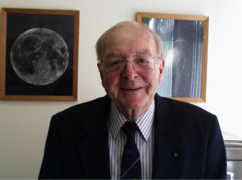
Stuart Ross Taylor, Goldschmidt Medalist (1993) and Geochemistry Fellow, passed away in Canberra, Australia on May 23, 2021, surrounded by family. Ross was a geochemist who made seminal contributions to our understanding of the origin and evolution of Earth's continental crust, and the composition and origin of the Moon, meteorites, tektites, and the solar system. Born in Ashburton, New Zealand in 1925, he received a BSc and MSc Hons from the University of New Zealand followed by a PhD in 1954 at the University of Indiana, USA, where he studied under fellow Kiwi Brian Mason. Taylor was Mason's only PhD student and Mason himself was the last PhD student of Victor Moritz Goldschmidt. Following his PhD, Ross became a tenured lecturer at Oxford University where he worked with Louis Ahrens and built an emission spectroscopy laboratory. There he met Noël, the love of his life, who was working on organic crystallography with Dorothy Hodgkin. They married in 1958 just before Ross accepted an appointment as a senior lecturer in geochemistry at the University of Cape Town, South Africa, where he began his work on the origin of tektites, mysterious glassy droplets found strewn over large regions of Earth. In 1961 he was recruited by John Jaeger to the ANU as a senior fellow in geophysics and in 1962 became a professorial fellow in the Research School of Earth Sciences where he spent the remainder of his career. At ANU he set up an emission spectrograph and later a spark-source mass spectrometer to analyze trace elements at unprecedented detection levels and precision. There he continued his work on tektites, establishing that they are terrestrial in origin and generated at meteorite impact sites. Shortly thereafter, Ross was invited to join the preliminary analysis team for the Apollo 11 and 12 missions and he produced the first geochemical analyses of lunar return samples. Ross went on to become a world expert on lunar composition and origin. He also focused his spectrometers on terrestrial samples such as andesites and sedimentary rocks, developing the andesite model for crustal origin and defining the composition of the upper continental crust through the analyses of terrigenous sediments (shales and loess). Over his prolific career Ross published more than 240 papers and nine books. He received a myriad of honors, including the Goldschmidt Award of the Geochemical Society, the Leonard Medal of the Meteoritical Society, the Bucher Medal from the American Geophysical Union, election to Australian Academy of Sciences, foreign associate of the US National Academy of Sciences, Companion of the Order of Australia, and the naming of asteroid 5670 Rosstaylor. Despite these lofty accomplishments, Ross was always humble and kind and widely loved by his students, post-docs, and colleagues. A student of history, he always had interesting historical anecdotes to share, as anyone who has read the footnotes in his books will know. Ross is survived by his wife of 63 years, Noël Taylor, daughters Judith, Susanna, and Helen, grandson Angelo, and son-in-law Michael.
Roberta L. Rudnick, UC Santa Barbara
Günter W. Lugmair (1940-2021)
April 20, 2021
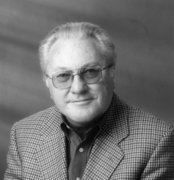
Cosmophysicist Günter W. Lugmair passed away on March 31. He received the Geochemical Society's V. M. Goldschmidt Award in 2007. It was one of many honors that he received over the course of a distinguished career.
Town Hall: Mentoring in Geochemistry
November 18, 2020
The Geochemical Society is pleased to announce our second town hall on diversity, equity, and inclusion (DEI) topics: Mentoring in Geochemistry--A tool for creating more inclusive and equitable environments. Join us on Thursday, December 3 from 4:00 - 5:30pm EST for an online discussion open to the entire geochemistry community. Learn more
Sam Savin Receives Distinguished Service Award
June 25, 2020
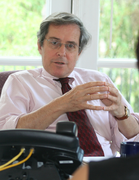
Sam Savin, the retired Provost of the New College of Florida (USA) will receive the Geochemical Society's Distinguished Service Award for 2020. Dr. Savin is recognized for his service as treasurer of the society from 2011-19. During his tenure, the society increased its reserve fund, moved to a fully electronic accounting system, and consistently received clean audit opinions. Dr. Savin also oversaw a shift toward socially responsible investing for the society's reserves. Before his election as treasurer, he served for three years as a director. The Distinguished Service Award recognizes outstanding service to the GS and/or the geochemical community that greatly exceeds the normal expectations of voluntary service.
GS-EAG Town Hall Discussion: Black Lives Matter-Promoting Diversity, Equity, and Inclusion in Geochemistry
June 09, 2020
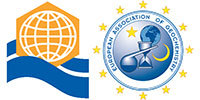
In these times of seismic events in human history, and national and indeed global awakening to a multitude of injustices, many societies and organizations are issuing statements to affirm their commitments to diversity, equity and inclusion (DEI), and to end racism, discrimination, and violence against Blacks and other minority groups the world over. The Geochemical Society (GS) and the European Association of Geochemistry (EAG) know that more needs to be done to create a society that embraces the ideals of human decency, fairness, and social and economic justice. The aim of this town hall meeting is to listen to our community members and to hear their thoughts on how to fight racism, increase diversity and equity in our discipline, and make the GS, the EAG, and the Goldschmidt meeting safe and inclusive for all.
The meeting will be held this Friday, June 12 (noon PDT, 3 pm EDT, 9 pm CET) and is open to all. We propose to focus the discussion on recent events and hear the perspectives of participants. To allow wide and inclusive participation, we invite members to submit questions beforehand using the link below. Participants may also make brief comments or ask questions during the town hall. We seek to hear ideas on how our two societies can make real and lasting progress towards our DEI goals, and effectively communicate these measures to our membership and beyond.
Panelists include:
- Magali Ader, Inst. Physics du Globe, Paris
- Asmeret Asefaw Behre, UC Merced
- Emily Cooperdock, University of Southern California
- James W. Dottin III, University of Maryland
- Benjamin Keisling, Lamont-Doherty Earth Observatory, Columbia University
- Penny King, The Australian National University
- Jabrane Labidi, Inst. Physics du Globe, Paris
- Cin-Ty Lee, Rice University
- Samuel Mukasa, University of Minnesota
- Aradhna Tripati, UCLA
GS Response to the Minneapolis Tragedy
June 04, 2020
Dear Geochemical Society Members,
Recent events in the United States, including the violent death of George Floyd and other African Americans, highlight the systemic discrimination and racism persistent in the US and globally. We are shocked, deeply distressed and share in the sadness. Black lives matter and inappropriate use of police force must stop.
As a Society, the promotion of inclusivity and diversity in science is in our core mission. Striving to achieve this is a daily and continuing goal and is incorporated into all our Society's activities. This is reflected in our public stand on equity and diversity and our enforced code of conduct for members.
The horrific events of the past several months confront us with the depths of ongoing inequity, discrimination and bias. As a professional society we must and will redouble our on-going efforts to provide an inclusive and supportive professional environment free of discrimination and harassment. We will continue, proactively and intentionally, to work to be more inclusive, educate ourselves about institutional racism and unconscious bias, and strive to increase the diversity of our Society. This is done on behalf of all our members and because scientific advancement in service of society requires a thriving, globally diverse, and inclusive community of scholars.
We draw your attention to a long-planned, up-coming workshop on June 24 associated with our virtual Goldschmidt Conference: Diversity and Inclusion in the Geosciences – Pitfalls, Unconscious Bias and Practical Solutions, which will provide a timely forum to discuss these issues and ways we can make progress on our goals.
| Vickie Bennett President Canberra, Australia |
Sumit Chakraborty Vice President Bochum, Germany |
Roberta Rudnick Past President Santa Barbara, CA, USA |
